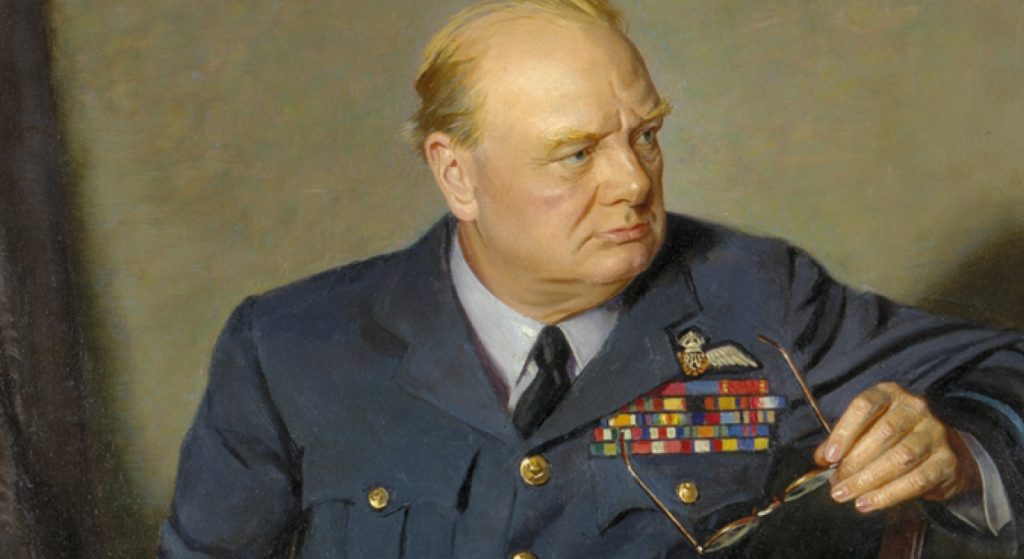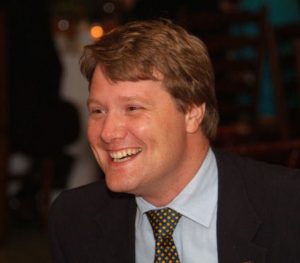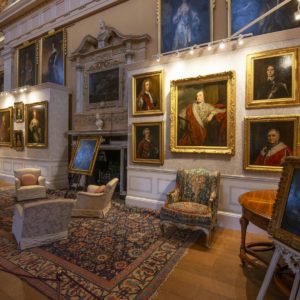
Bulletin #129 – Mar 2019
Churchill a Criminal?

March 6, 2019
By DAVID FREEMAN
“Criminal.” “Villain.” “War monger.” These were just some of the accusations leveled at Abraham Lincoln. Today they are thrown at Winston Churchill. Defending democracy during a crisis comes at a price.
Churchill gets it from the far left and the far right. The same man who successfully stood up to Hitler had also foretold the evils of communism and never regretted his unsuccessful efforts to “strangle Bolshevism in its cradle.”
The Communists have neither forgiven nor forgotten. John McDonnell, deputy leader of Britain’s Labour party and self-proclaimed Marxist, recently labeled Churchill a “criminal.” This followed soon after a Green Party member of the Scottish Parliament, Ross Greer, described Churchill as a “mass murderer” and a “white supremacist.”
Ironically, McDonnell and Greer have placed themselves in the same company as American polemicist Pat Buchanan, whose 2008 book Churchill, Hitler, and the Unnecessary War reiterated the complaints that the isolationist right have been making against Churchill since the days of the America First campaign. And neither McDonnell, Greer, nor Buchanan will get much argument about Churchill from the outspokenly anti-Semitic and ultra far-right historian David Irving.

2025 International Churchill Conference
The attacks from the political extremes leave Churchill’s defenders, embodied in the International Churchill Society, exactly where we are proud to be: in the center standing firm for the rule of law, human rights, and representative democracies with welfare states funded by free markets.
Historically, admirers of Churchill have ranged from the center left to the center right. The present Speaker of the United States House of Representatives and her two immediate predecessors have all spoken at ceremonies on Capitol Hill in recent years honoring the Greatest Briton. Still the attacks continue.
Churchill is often wrongly quoted as saying that “a fanatic is someone who won’t change his mind, and won’t change the subject.” Though Churchill never actually said this, the aphorism nevertheless accurately describes the great man’s relentless critics who will not be deterred by any amount of evidence that contravenes their beliefs.
The good news is that each time foolish charges against Churchill are repeated the International Churchill Society receives a surge of inquiries from people seeking to know the facts. The same old myths are repeated so often that we can direct truth seekers to any number of reliable and well-documented sources.
It is, of course, much easier to toss out a two or three word attack in public than it is to explain the true story in its proper context. People generally dislike long answers even when long answers are obviously correct. Yet recent attacks against Churchill have driven so much traffic to our organization that as editor I expect conspiracy theorists will start to accuse us of planting them.
To be sure, Churchill said and did things that, seen in isolation, do not measure up to the standards of today. But to focus on these is to ignore that, like Lincoln, Churchill’s views evolved over time on some issues such as women’s suffrage and self-government for India.
In an age when people in public office are being held to account for single statements or actions from their (often distant) pasts, we are forgetting that politicians—like the rest of us—can and do travel through personal journeys of change, usually with good reason. Ronald Reagan went from New Deal Democrat to Republican hero. Hillary Clinton began as a Goldwater Girl.
What really matters is how our leaders behave in the clutch. “Strength is granted to us all,” Churchill stated, “when we are needed to serve great causes.” We could use more criminals like that.
David Freeman is Director of Publications for the International Churchill Society.
Subscribe
WANT MORE?
Get the Churchill Bulletin delivered to your inbox once a month.





